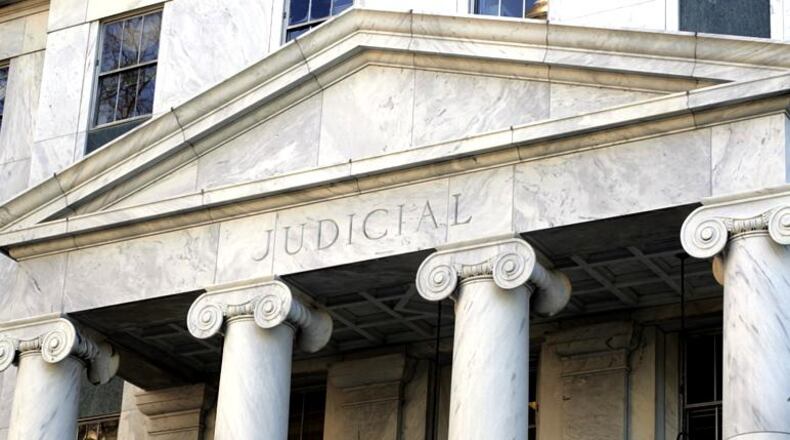The Georgia Supreme Court on Monday ruled that the public may not obtain or even copy audio recordings of courtroom proceedings that are made by taxpayer-funded stenographers.
The unanimous decision rejected an attempt by the popular podcast “Undisclosed” to copy a court reporter’s audiotape of a 2001 murder trial in Floyd County.
Because Georgia’s judiciary is not subject to the state’s Open Records Act, the podcast sought access to the audio recordings under a judicial rule that ensures disclosure of official court records. The problem, the state Supreme Court said, is that a court reporter’s recording is not an official record because it is not filed with the court. But the official trial transcript is filed and can be accessed by the public, the decision noted.
Most stenographers record what’s said during trials as a backup to ensure the accuracy of their transcriptions. Podcasts in particular depend on the audio record of an event to enable them to tell the story of that event more accurately and effectively. In its ruling, the state high court cited limited exceptions for when recordings can made available, such as when parties believe there are errors in the official transcript and want them corrected.
The ruling, written by Justice Nels Peterson, does not forbid court reporters or judges from sharing recordings of open court proceedings with podcasts or members of the news media. But it gives court officials the right to turn down the requests whenever they want to.
In recent years, The Atlanta Journal-Constitution has been granted access to copy stenographers’ recordings to use in Seasons 1 and 4 of the newspaper’s “Breakdown” podcast.
“In criminal cases, the court reporters who make the audio recordings are typically paid with taxpayer dollars,” the Georgia First Amendment Foundation said in a statement. “The public should get the benefit of that expenditure.”
The state Supreme Court should require audio recordings to be filed with the court, the foundation said. “Then, under the logic of the court’s decision, the public and press would be able to obtain copies of them.”
“Undisclosed” sought to use the audio so its listeners could hear testimony in the murder trial of Joey Watkins. Watkins is serving a life sentence, but the podcast has raised questions as to whether Watkins was wrongly convicted in the killing of Isaac Dawkins.
“We are, of course, disappointed with the court’s ruling … because Undisclosed’s audience will not get the benefit of listening to the trial,” said Atlanta lawyer James Cobb, who represents the podcast.
“It is ultimately up to individual judges and court reporters to decide whether they want to make recordings available, and we would urge all judges and court reporters to do so,” Cobb said.
University of South Carolina law professor Colin Miller, one of the hosts of "Undisclosed," also expressed disappointment the court rejected the podcast's arguments. But Miller praised the court for ruling separately that members of the public not only have access to official court records, they also now have a clearly established right to be able tocopy them.
About the Author
Keep Reading
The Latest
Featured





